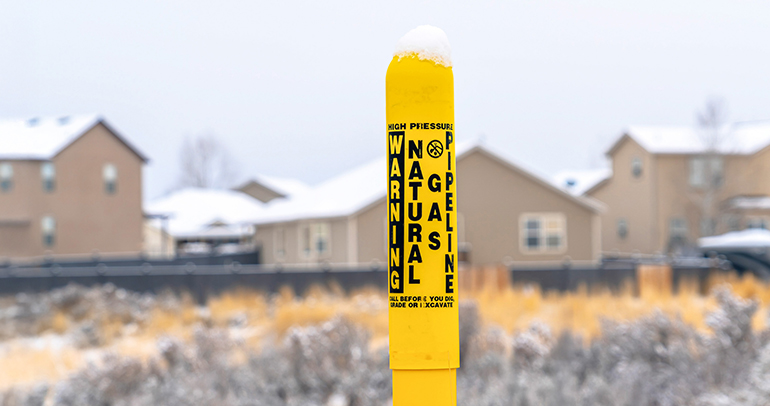
Drawing Parallels Between the Energy and Telecom Markets
Let’s talk about the Texas retail electric provider (REP) market.
But first—and I promise this is related—who remembers the long-distance telephone battles of the ‘80s and early ‘90s? (Sigh. Yes, kids. We used to have landlines. The cell phone was then a very sci-fi/spy-fi concept. And calling someone out of your defined calling area cost more than a local call, especially on weekdays before 9 p.m.)
After the breakup of the Bell System in 1982, consumers had multiple choices for long-distance phone service, resulting in long-distance retailers offering sign-up bonuses and complicated discount schemes and customers regularly swapping plans and companies.
At some point, the price battle ebbed, or maybe customers just got tired of looking out for the next best deal (that’s my household’s story, anyway).
Eventually, with the introduction and rapid proliferation of cell phones, landlines and long-distance pricing started losing mindshare among American consumers—I can’t tell you what long-distance pricing is for landlines anymore (I can’t even tell you if landlines HAVE long-distance pricing anymore).
We do, of course, now see similar pricing incentives among cell service providers, though incentives tied to contracts tend to rope customers in for multiple years. And many of us who already went through phone-related pricing nonsense simply buy our own phones, choose a provider and put the monthly bill on autopay unless there’s a significant shift in pricing industrywide.
Now back to the Texas REP market.
The Competitive Landscape of the Texas REP Market
Whenever I try to wrap my head around this market, my mind always goes back to those long-distance phone call wars, when customers were always being reminded that “switching to save” was a distinct (if elusive) possibility.
Most Texas residents live in areas with a deregulated energy market where they have the option to select their electricity provider from among several companies.
How many companies, you ask? The Public Utility Commission of Texas lists dozens, and it’s not uncommon for new electric retailers to enter the market (likewise, some leave the market). It can be difficult for newcomers to gain market share, but it’s also difficult for long-established retailers to hold on to customers. The number one goal for REPs subscribing to our Cogent Syndicated Texas REP Trusted Brand study is to obtain our data-driven insights into how to slow customer churn.
Why Brand Trust Matters in the Texas REP Market
Brand Trust is a key link to customer loyalty. Our findings consistently show that customers who have a trusted relationship with their REP are nearly twice as likely to say they don’t plan on shopping for a new provider within the next year. Since it is generally less expensive to keep a customer than it is to acquire a new one, focusing on building a strong brand among existing customers remains a key competitive strategy.
However, it turns out most Texas REPs are great at marketing but only a few have earned trusted brand identities.
Strategies for Texas REPs to Build and Maintain Brand Trust
How does a company obtain and keep Brand Trust when it seems like pricing outweighs all other considerations?
While competitive rates are a key motivator for customers to choose a REP, good customer service and communication are features that can compel customers to stay with their retailer.
Although a free-night-and-weekend-rate offer is an important sign-up incentive (and reminiscent of those old-school long-distance phone company promises), with 38% of Texas REP customers citing it as one of their top three incentive preferences, more than 25% also view quick and easy payment options with online account management and an easy-to-use website for bill payment and other service transactions among their most wanted features.
Additionally, customers are certainly looking for a lower bill but they’re not necessarily looking for a quick-hit pricing scheme. Customer use of a variety of offerings from their REPs, including online energy management tools, online energy audits and communication analyzing energy use, correlates with higher Brand Trust and, thus, better customer loyalty.
Making Your Texas REP Easier to Do Business With
In short, companies that make themselves easier to do business with and help their customers identify ways to save energy have a better chance of holding on to current customers.
Our Cogent Syndicated study is a year-long survey of customers of the largest Texas REPs and scores each on a proprietary Brand Trust Index to designate the most trusted brands. Texas consumers trust these providers above other REPs, making them the most likely to wrestle customers away from other providers and build greater loyalty.
To learn more about our Texas REP Trusted Brand study and how our energy industry experts can help you build better Brand Trust, contact us by filling out the form below.
Want to learn more? Let’s connect.
About Escalent’s Cogent Syndicated Texas REP Trusted Brand Study
Cogent Syndicated measures Customer Engagement and Brand Trust among customers of Texas retail electric providers by surveying 3,357 customers across providers based upon data-driven models. The study measures key performance indicators to provide management perspectives on how to improve REP brand positioning, sales and promotion, customer trust, effective messaging, product sales, customer experiences, service quality, customer acquisition and loyalty. Escalent’s Brand Trust Index comprises nine factors: community support, customer focus, communications effectiveness, environmental dedication, local reputation, reliable quality, competitive rates, enhanced offerings, and billing and customer service. The study collects a demographically representative sample across all Texas service territories open for retail electric competition. Escalent will supply the exact wording of any survey question upon request.








